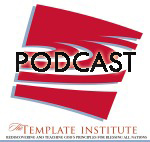God, the Bible and Political Justice: Chapter 9
Part 2: Moses and the Prescriptive Law
Chapter 9
Land: Ownership, Rights and Legal Boundaries
“Does the Bible have anything to say about land?”
My host for this event, in a remote tribal island state, was a former Speaker of the House of Parliament. For security reasons we were gathered as a small group in his home to discuss the future of their indigenous people within the greater development plan of the nation.
“The Bible has a lot to say about land. In fact if you color the word on each page you begin to think the Bible is a book about land.”
This was an important question for the tribes as the national government had asked them to give ownership of the tribal lands to them. The feeling was that the tribes had done little to develop these valuable land assets. For the benefit of the tribes as well as the nation as a whole, it was suggested that they give up their land rights.
What should they do?
Following the formation of government in Deuteronomy chapter one the next passage of prescriptive law in chapter four is the division of the land amongst 12 of the 13 tribes.
There is nothing more important to the life of a people than the land they inhabit. The only thing worse for the life of a people than the loss of their land is the loss of their language. Their land in part, defines a nation and the subject begins in Genesis chapter one.
A Short Cosmic History of Land
In Genesis one God creates the heavens and then the earth. Hebrew scholars draw out the symmetry of three days given to the creation of spheres; the sky, the waters and then land, while the second three days are given to the creation of the inhabitants; birds, fish and finally land animals and man.
In physics it is understood that in the origins of the cosmos first there is space, then matter, time and finally, life. Matter is not only the “stuff” of life it is the “stuff” for life. If “life” is sacred, “belonging to God,” then so is the material world including the land we live on, the air we breathe, the water we drink and the food it provides. We cannot live without the material world.
In the beginning all the earth belongs to God. In Genesis one and two the Lord begins to delegate authority for the land to Adam. First He develops a “garden in the east” and puts the first human beings there. Although all the earth is designated for man to rule, God begins with a garden. God gives the real-estate very specific boarders. In essence this is the first “land treaty” and the first “land boundaries.” The boundaries of the garden are very specific and easy to recognize with the naked eye.
Genesis 2:10 A river watering the garden flowed from Eden; from there it was separated into four headwaters. 11 The name of the first is the Pishon; it winds through the entire land of Havilah, where there is gold. 12 (The gold of that land is good; aromatic resin and onyx are also there.) 13 The name of the second river is the Gihon; it winds through the entire land of Cush. 14 The name of the third river is the Tigris; it runs along the east side of Ashur. And the fourth river is the Euphrates.15 The LORD God took the man and put him in the Garden of Eden to work it and take care of it.
Boarders of the Garden
The geography of these border rivers is very interesting, even today, and they will stay strategic throughout scripture and history into our new Millennium.
We still know where the Euphrates is, even though there would be some deviation from its’ ancient path. Today it runs from middle-eastern Turkey down through northeastern Syria and meanders through central Iraq uniting with the Tigris and exiting into the Persian Gulf just north of Kuwait. The eastern border of the Garden of Eden, the Tigris, begins today east of the Euphrates in eastern central Turkey and meanders east of the Euphrates through Bagdad and the length of Iraq until it unites with the Euphrates just before it empties into the Persian Gulf.
The next two rivers given as western boarders are a little more difficult due to the shifting of the platelets creating the continents. Farthest west is the Pishon, which is described as running through the entire land of Havilah and, to its east, the Gihon that is described as flowing through the entire land of Cush. Cush is generally accepted as being modern Ethiopia and running along the Red Sea. Havilah is generally accepted as the area at the southern end of the Red Sea west to the Nile River.
If we look at a satellite map of the region, it is not difficult to imagine that originally the western rivers ran from the Indian Ocean, through what is now called the Persian Gulf up through to the Black Sea. And that the rivers on the western boarder of the Garden begin in the Indian Ocean and are now what we call the Red Sea and the Nile. Eden is most often thought to be near ancient Ur, southeast of Bagdad on the Euphrates River. This is where Abraham’s family originated.
So, essentially the Garden of Eden may have constituted what today includes western Egypt, western Sudan, possibly Tanzania and Mozambique, Uganda, Kenya Eritrea, Ethiopia, Somalia, the entire Arabian Peninsula, all of Palestine, Israel, Lebanon, Syria, Jordan, and most of Turkey and Iraq. Now that’s a garden!
God gives title and authority over these defined lands to Adam, male and female. They are to have dominion over all of creation but for now it is the garden. Boundaries and boarders define responsibility and authority. No individual, family, tribe or nation can “own” land until there is an established authority to officiate and secure that right. In Scripture that authority originates with God.
However, because of sin, the first family is banished from the Garden. The lifetime lease is rescinded. They have exceeded the authority of the terms of their contract. The promise is void.
Which direction did Adam and Eve go when they left the garden? The angel left to guard the boarder is stationed on the east side. So it is possible they left the direction that Abraham will return from, east of the Euphrates.
A Short History: Land and Israel
Twenty generations after Adam and Eve are banned from the garden, God raises up a man named Abraham whose family roots are in Ur, a city south of Babylon on the Euphrates River. In Genesis 12 God calls Abraham to leave his ancestral home and people and travel west to a land where He will make him “into a great nation.” The land that God speaks to them about is Canaan. It is on the western side of what was formerly called “the Garden.”
Abraham and his family, including his nephew Lot, live as nomads in the land of Canaan. They are in the Negev south of the Salt Sea. When Lot and Abraham’s stock outgrow their ability to be sustained by the same land, they negotiate a solution. Abraham gives Lot the choice of where he wants to graze. Lot takes the best of the land; the Plain of Jordon to the east and Abraham stays in Canaan the land of promise, but evidently not the best grazing.
In Genesis chapter 15 God speaks to Abraham again about the land He will give him and the boundaries. Abraham’s land will run from the river of Egypt Nile to the Euphrates. There is no southern boarder mentioned here, but this is all of the western boarder and much of the northern boarder of the Garden of Eden. This territory covers most of today’s Israel, Palestine, Syria, and Lebanon and possibly a chunk of Iraq. But in this passage God makes it clear to Abraham that it will be half a millennium or more before his people take position of these lands.
In Genesis chapter 17 God promises to make Ishmael into a great nation and the father of twelve nations, as well as Isaac. This will add territory to the “land of Abrahams children,” as Genesis 25:18 notes that Ishmael’s descendants settled from Havilah to Shur. This seems to cover much of the Saud Arabian Peninsula up to the western Sinai.
In that same chapter the six sons of Keturah, Abraham’s second wife, move off to the south east of the Jordan river settling, it would seem, along the western boarder of the Saud Arabian peninsula. Lot settles in Zoar just south of the Dead Sea. His daughters birth the fathers of the Moabites and Ammonites. Esau, bereft of his inheritance through Jacob’s deception, is blessed by his father to live “away from the earth’s richness, away from the dew of heaven above.” In other words, away from the Promised Land. He settles in the hill country of Seir that is east of the Wadi Arabah in what is now Jordon. Esau’s descendants are the Edomites of what was then called Edom. Esau marries the daughter of Ishmael, son of Abraham.
For some reason, few, if any, Bible aids map out the geography of these passages. You have to do the study and map it out yourself. As you do you will begin to wonder whether the descendants of Abraham did, in fact, inherit most of the Garden of Eden, as all of them had promises from God.
Here are two things I think we must see to understand God’s view of land:
- God gives land to all tribes and nations.
- Keeping those lands and blessing of the land is dependent on the values the culture develops. God’s promises are conditional.
Therefore, throughout scripture, from the Garden of Eden on we are dealing with shifting boarders, nations gaining and losing land, nations dying and being birthed. God has a plan and purpose in all of it, as He does today.
Land and Boundaries
When we have an overview of what God is saying, it is clear that land is essential for a nation to exist and an economy to prosper. Distribution of land will be a key factor in whether or not economic development eliminates abject poverty in a society. In other words, all nations have wealth. That wealth is in the potential of the land and its’ people. Poverty is determined by where the wealth of the nation is held and how the people and the land are developed. In nations with crippling poverty, the land is held by an elite few while the masses remain without title to property, and the people remain woefully poor and underdeveloped in their potential.
Within the context of the subject “land” there is an emphasis on boundaries, or rights and limits to land ownership. Deuteronomy 3:12-17 begins the process in Israel with very specific instructions for dividing the land amongst the 12 tribes of Israel. Other passages deal with the “land within the lands” of each tribe that is to be designated allotments for the Levitical priesthood (church) and the King (government). These have very specific boundaries. The fact of desperately poor nations is land ownership is in the hands of the government, religious institutions or a minority elite. Some owned almost entirely by one or all three.
Land Is For The People
Numbers 26:52-56 adds the understanding that the boundaries that God laid out for each of the tribes was based on the population of the tribe. So more land was given to the large tribes and less to the smaller. I think we can assume that there is consideration for quality of the soil and the availability of water as well as what was most suitable for the tribes occupation. This, by itself, would make a great study, especially for those needing to develop a Biblical criterion for land distribution and development.
Getting Israel to participate in land ownership was no easy task. These were nomadic herders like the Maasi of Kenya or Tibetan mountain herders. Their entire culture was built around moving to “greener pastures.” The first challenge Israel faces is that they will have to fight to free their land, necessitating putting their lives and the lives of their families on the line. The first generation is unwilling to do this and so spend forty years in the dessert. They did not have the national will to form a military and fight for their boarders.
Numbers chapter 34 repeats the boundaries that God is now giving to Israel along with the boundaries for all 12 tribal territories in great detail. It is important to note that the process of choosing the land and public agreement are officiated by both the head of government and the head of the church. In other words, ratified by man, supported by God and enforced by law.
In the book of Deuteronomy alone the repetition of “occupy” the land appears more than 70 times. Added to that is the injunction to “make the land prosper,” or develop it. Convincing and training these nomadic people with their “slaves” mindset to develop the long-range planning and daily labor requirements is no easy task. It takes generations for the Jews in Scripture to integrate these values into their thinking. The shift in thinking from “move to the land that will prosper you” to “prosper the land where you are” is huge. But it is essential if a people are to be “discipled.” It begins with owning land and the consequences of that responsibility.
Local and Family Distribution
Numbers 34 notes that the intertribal designation of land was done at the tribal level. Tribal boundaries were designated at a national level and chosen by lot. Intertribal boundaries for families were decided within the tribe. We can assume the same values were used but we are not told how this was done. And inheritance, while stressing a system of eldest son, was ultimately a family decision. All of this serves to push wealth, authority and responsibility down.
Negotiate/Buy the Land
Throughout Genesis the strategy for Abraham’s use of land is “negotiation” and for acquiring land, “purchase.” Abraham negotiates with the Pharaoh in Egypt in chapter 12 and Abimelech, King of Gerar in chapter 20 and again in chapter 21 regarding water rights in the land. In chapter 23 Abraham negotiates and purchases land from the Hittites in order to bury his wife Sarah. He acknowledges that he is a foreigner in a land that is rightfully theirs. While the strategy is clearly tainted by Abraham’s use of his wife as leverage, “negotiate” and “purchase” were clearly the means God was using.
Would this have remained God’s strategy if the inhabitants of Canaan had not become irredeemably decadent in the centuries Abraham’s clan were in slavery in Egypt?
I think we can assume that like the flood, the mandate to wipe out these tribes was a desperate redemptive measure on God’s part. I think we can also assume that like the flood, it may be a one-time event rather than a Biblical strategy for redemption. The value is not the miracle or the means but what God is accomplishing for the nation through them.
Amendment of Legal Borders
The first petition for change of tribal land assignments takes up the entire chapter of Numbers 32. Two and a half tribes come to Moses to make an application to stay in the land on the east side of the Jordan rather than occupy the land they have been given on the western side. They are herders and the eastern land is good for grazing. Moses’ concern is that they will give up assisting the other nine and half tribes of Israel in taking their territories and leave the military strength of Israel weakened. The two and a half tribes swear allegiance to the other tribes and their military support to taking all of the lands. Moses, the priest and the tribal elders ratify the treaty for changing the designation of land with contractual conditions. The East Jordan tribes must fulfill their commitment to militarily support the other tribes in securing their land. If they fail to do this they must take up residence in their assigned lands on the west side of the Jordan.
It is important for us to clearly understand the transaction that is taking place here. These 13 tribes have committed to God to secure and inhabit the land in Canaan that He has designated. They have all taken a vow to obey God and to support each other in this national movement. These are legally and morally binding promises and commitments. The two and a half tribes are a free people and have a choice. However, they do have a binding agreement they must fulfill before they are free to go their own way. Their individual tribal choices must not subvert the safety and good of the nation as a whole.
Jewish scholars comment: “Moses fears for the fate of Israel on account of the actions of Gad and Reuben; this verse assumes corporate responsibility, where a serious infraction by part of the nation endangers the nation as a whole.”
Moses reminds them of the rebellion in the wilderness, which cost an entire generation their inheritance in the promise land. He calls them a “brood of sinners” who “make the Lord even more angry” than the generation before. However, if they will fulfill their military responsibility to their brother tribes, helping them to capture and clear their tribal lands, and then they will be released of the “legal” obligation.
There is no happy future for the eastern tribes, as the history of Israel will record. On today’s’ map this is southern Syria and most of the nation of Jordan.
The Second Land Amendment
The first appeal in Scripture on the interpretation of the Law involves the inheritance of land within the family. The specific question is whether daughters, in the absence of a male heir, have the right to inherit the land so that the father’s inheritance is not lost to the family. Moses consults the Lord and God’s answer in Numbers 27 is resoundingly “yes.”
An appeal of a law comes in Numbers 36. Here the men of the tribes come and argue that if the women inherit the land and then marry outside of the tribe the families will still loose their land. Moses consults the Lord again and this appeal is also upheld. The new amendment states that if a woman inherits the family property then she must marry within the tribe so that the land is secured. Otherwise she may marry whomever she wishes. The emphasis is on keeping ownership within the family.
Documentation of Land Transactions
A land transaction was ratified before the community with the elders at the gate with the exchange of a sandal. Contractual agreements where to have witnesses, be legal in nature, transparent and clear to the public. I think we can assume the reason is as a deterrent to lying, theft and fighting. Again, God assumes if we can be corrupt, some will be corrupt. Due process is intended to be a deterrent.
We will look at the 50th Jubilee year where all leased land was returned to the owning family in our volume on economics. But this limitation on the outright sale of family land was also intended to protect from a monopoly of land ownership.
Blessings and Cursings: Losing the Land
From the promise of land to Abraham in Genesis to the distribution of land under Moses, and again in the times of the Kings, God Himself changes the boundaries of the land He has given Israel several times. When this happens in Scripture it always indicates judgment on the choices of the nation. It is clearly not a blessing and indicates the devolution of the culture. In Deuteronomy 28 the Law reads: (if you do not obey these decrees)
33 A people that you do not know will eat what your land and labor produce, and you will have nothing but cruel oppression all your days. 34 The sights you see will drive you mad. 35 The LORD will afflict your knees and legs with painful boils that cannot be cured, spreading from the soles of your feet to the top of your head. 36 The LORD will drive you and the king you set over you to a nation unknown to you or your ancestors. There you will worship other gods, gods of wood and stone. 37 You will become a thing of horror, a byword and an object of ridicule among all the peoples where the LORD will drive you.
In other words, you will lose the land and everything it provides.
God Gives and God Takes Away
We often focus on the land that God gives Israel in Canaan, which is already occupied by seven other tribal nations. God is taking the land from those nations because their cultures are so dissolute of any redeemable virtue that there is no future for the people but destruction. They are slowly self-annialating and a swift end is the mercy of God. But, Israel was forbidden from touching the boundaries of any other tribe in the area. God clearly honors the boundaries of all nations and tribes with only the grossest of exceptions. And what we need to remember here are that the very same standards God applied to those seven tribes God later applies to Israel as they sink to the same level. They become, in the gravest sense of the word, a failed nation where life cannot be sustained.
We rarely highlight the numerous other tribes and nations that God forbids Israel from touching. God is not giving the chosen people a carte blanche to go for a land grab. He is very specifically taking land from degenerate cultures, doomed to self-destruct and giving it to another tribe and nation. He is giving a new nation a chance.
God has a covenant with all tribes and nations. He is in a redemptive process with all peoples. And that redemptive process includes the giving and the taking of their land as a measurement of their own values and consequence of their own choices. Israel will finally lose their promised land for the same reason other nations lost their land.
The blessing and cursing of any people, tribe and culture can be traced through the values they were applying when they were safe and secure, and prospered against when they began to decline, devolve and finally lose everything. Conquering peoples are not to be seen as the blessed victors. This is not good guys versus bad guys. Those in ascendance can be seen as the next peoples, tribes and nations that God is giving a redemptive chance. How will they do? They will have to decide and their choices will create their future, as the Prophets make clear for Israel.
We, seek to bless all of these nations and disciple them into making choices that will create a hope and a future. We seek to demonstrate to and through them the superior ways and values of God, that He might be seen. Part of our discipleship is pushing land ownership down so that, increasingly, the people of the land hold the wealth of the land in large measure.
The next judicial issue addressed by in the prescriptive laws is that of “the cities of refuge” and “due process.”







